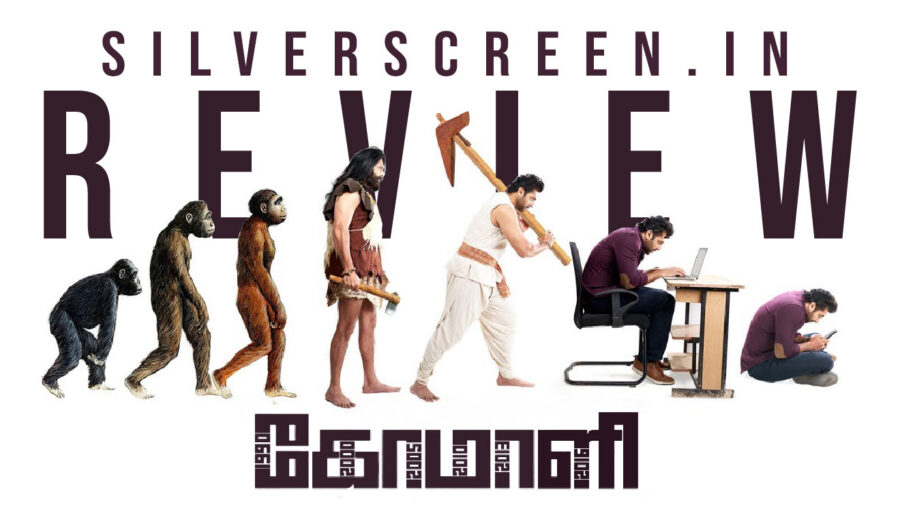Director: Pradeep Ranganathan
Cast: Jayam Ravi, Yogi Babu, Samyukta Hegde, Kajal Aggarwal
The funniest scene in Comali arrives a little before intermission. Yogi Babu as Mani, in true millennial fashion – the film is about a young man who tries to straddle two worlds; one that exists only in memory, and the other, the reality he wakes up to – is driving on cue from Google Maps. Google Maps, true to form, throws in a few random turns, and makes him crash into a house. Mani stoically ploughs through like all of us – well, some of us – and when Google announces his destination, he looks up, only to find himself right in the middle of a graveyard. This exaggeration (a hoot on screen) is not without merit, and as they say on Twitter – relatable af. The best part of the sequence is that Mani never gives up. Because, Google knows, he assures himself, even as his friend – Jayam Ravi as Ravi, who’s just about making up for some serious time lapse – tries to stifle his growing paranoia. It’s this particular moment that perhaps sums up the generational cohort that Comali tries to portray even as director Pradeep Ranganathan alludes to and compiles an album of 90s memorabilia. The idiosyncrasies of 90s school life, assorted foods from the time, and other facilitators of nostalgia (that were used to great effect in the film 96) don’t quite hold a candle to Mani’s staunch faith in technology.
Millennials are tech evangelists (no, we don’t take credit for much else) – for which other demographic has the distinction of being the first to have an active digital profile right since their tweens/teens? Or turned to the World Wide Web to help navigate life? But this assertion doesn’t come from a place of condescension that Comali treats it with. Ranganathan’s tale has preachy overtones, about lives being consumed by technology and related ills. Jayam Ravi, who headlines Comali, and who wakes up from a decade-and-a-half long coma in the film only to find that life around him (and people) has changed beyond recognition, rants that everyone’s world seems to have shrunk to the size of their phones – physically and metaphorically. He may not be entirely wrong, but Ranganathan, like those staunch activists for all things old, takes a dark brush to technological advancement, and his dislike for it is absolute. And that is another aspect that the director had perhaps unintentionally borrowed from the filmmakers of the 90s (KS Ravikumar is around for some optics) – an unquestioning devotion to the past, even if it meant showcasing some unsavoury traits (of Tamil cinema) from that period.
Recommended
In Comali, which Ranganathan markets as a tribute to the 90s, and ‘the kids of 90s and 2k’, there’s a lot of attention to a woman’s middle (from the men that populate the film, and the unflinching gaze of the camera) – in fact, written in as a serious plot element – reeking of some extremely distasteful filmmaking from the era. Melodrama is always at hand too. Unsurprisingly, the engaging parts of the film belong to the portions that are set in the present – the ‘controversial’ scene featuring Rajini finds an unobtrusive mention – and not to those recreations of the past. Not everything old needs to be relived or celebrated (the good memories have already been splashed over every other media) – especially not the sleaze.
*****
The Comali review is a Silverscreen original article. It was not paid for or commissioned by anyone associated with the film. Silverscreen.in and its writers do not have any commercial relationship with movies that are reviewed on the site.



